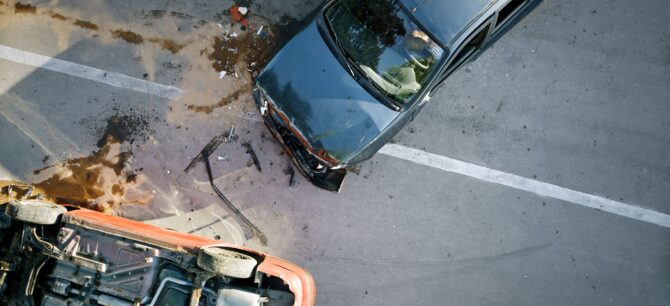What Happens After a Deposition in a Car Accident Case?

People injured in a traffic accident caused by another driver’s negligence may claim compensation to cover their medical expenses, lost income from missed work, and pain and suffering. If the at-fault driver’s insurance denies your claim, you may need to file a car accident lawsuit to demand compensation from the party that caused the crash. A Palm Coast car accident lawyer at Chiumento Law, PLLC, can assist you.
A car accident injury lawsuit involves gathering evidence and building a case against the other driver. A deposition is one way to find out information about how the accident occurred and compile evidence.
What Is a Deposition in a Car Accident Case?
Florida Rule 12.330 outlines the legal requirements for a deposition to be used as evidence in court. Depositions occur during the discovery phase of a car accident lawsuit. Both sides conduct depositions to gather evidence to build their cases.
A deposition in a car accident claim is a witness interview conducted under oath and transcribed by a court reporter. The witness is sworn in, just as they would be if they were testifying at trial, and then answers questions posed by an attorney. Lawyers may use the answers given in depositions as evidence and to help them identify other witnesses to depose.
The attorneys for each side have their own lists of witnesses to depose. After the deposition is complete, the court reporter creates a transcript, which is available to both parties.
What To Expect in a Deposition for a Car Accident
As a car accident victim, expect to be deposed as part of your personal injury lawsuit. This can be nerve-wracking, but your lawyer will be with you in the deposition. Your attorney can step in if the defendant’s lawyer tries to ask you inappropriate questions or tries to bully you.
The deposition will likely take place in one of the lawyer’s offices. A court reporter will be present. The reporter will swear you in and take a detailed transcription of the entire deposition.
The defendant’s attorney will ask you questions. You should answer to the best of your ability unless your attorney objects to the question or directs you not to answer. In some cases, after your attorney objects, you will be directed to answer the question anyway. A judge will later rule on whether the question was appropriate.
The duration of the deposition will depend on the complexity of the car accident case. Some depositions take an hour or two, and some take longer. Your lawyer can advise you about what to expect.
How To Prepare for a Deposition
Our Palm Coast car accident lawyers may conduct a mock deposition to help you prepare or give you a list of questions they anticipate the other side will ask. Some of the questions are usually straightforward and serve to establish who you are and your connection to the case, such as:
- Your name, driver’s license number, and car information
- What you were doing at the date and time of the accident
- How you were hurt, and the specific details of your injuries
Other questions may be a little uncomfortable, such as:
- Were you texting and driving?
- Were you drinking or using drugs before getting in the car?
- Were you speeding?
- Did you signal your intentions to merge or turn?
The goal of the defendant’s lawyer is to challenge your credibility. They want to make the accident look like your fault so their client may not have financial liability.
What Happens After a Deposition in a Car Accident Case?
Once the discovery process, including all depositions, is complete, then the case moves to trial.
After the depositions are transcribed, each party can order a copy. Your lawyer will get a copy of yours. It’s important to review it to see if there are any errors. You and your lawyer can correct errors if you find them.
Depositions aren’t always used as evidence in court, but Florida law does permit them to be used when:
- The witness is dead
- The witness cannot testify in court due to infirmity, incompetence, or illness.
- The witness is more than 100 miles away and cannot be in court
- The witness is unable to be subpoenaed to court.
The witnesses for each side will be deposed and may also testify in court. One way that lawyers use depositions is to poke holes in witness testimony at trial. For example, if the other driver answered “No” when asked at trial, “Were you drinking before you got in the car?” then your lawyer may say, “In your deposition, you say you had four beers at a bar, then drove home.”
Here’s another answer to the question, “What happens after a deposition in a car accident case?”
The other side may commit to good-faith negotiations to settle the car accident case after reviewing the facts of the crash revealed in the depositions. Once both sides have deposed all available witnesses, the facts could clearly favor the plaintiff, so the defense may offer a settlement to avoid the risk of a court award.
The plaintiff and defendant may negotiate a settlement at any point in the lawsuit process before the court reaches a decision.
Get in Touch with Our Palm Coast Car Accident Lawyers
You may have the right to seek compensation for your losses after a car collision in Florida caused by another motorist’s carelessness or disregard for safety. A skilled car accident lawyer with Chiumento Law, PLLC, can review the details of your accident and discuss your legal options. If you have a valid car accident injury claim, our attorney can help you seek full and fair compensation for your losses. Our legal team will stand beside you each step of the way during the claims process. You can learn more by contacting our law firm today at (386) 445-8900 for a free consultation.
